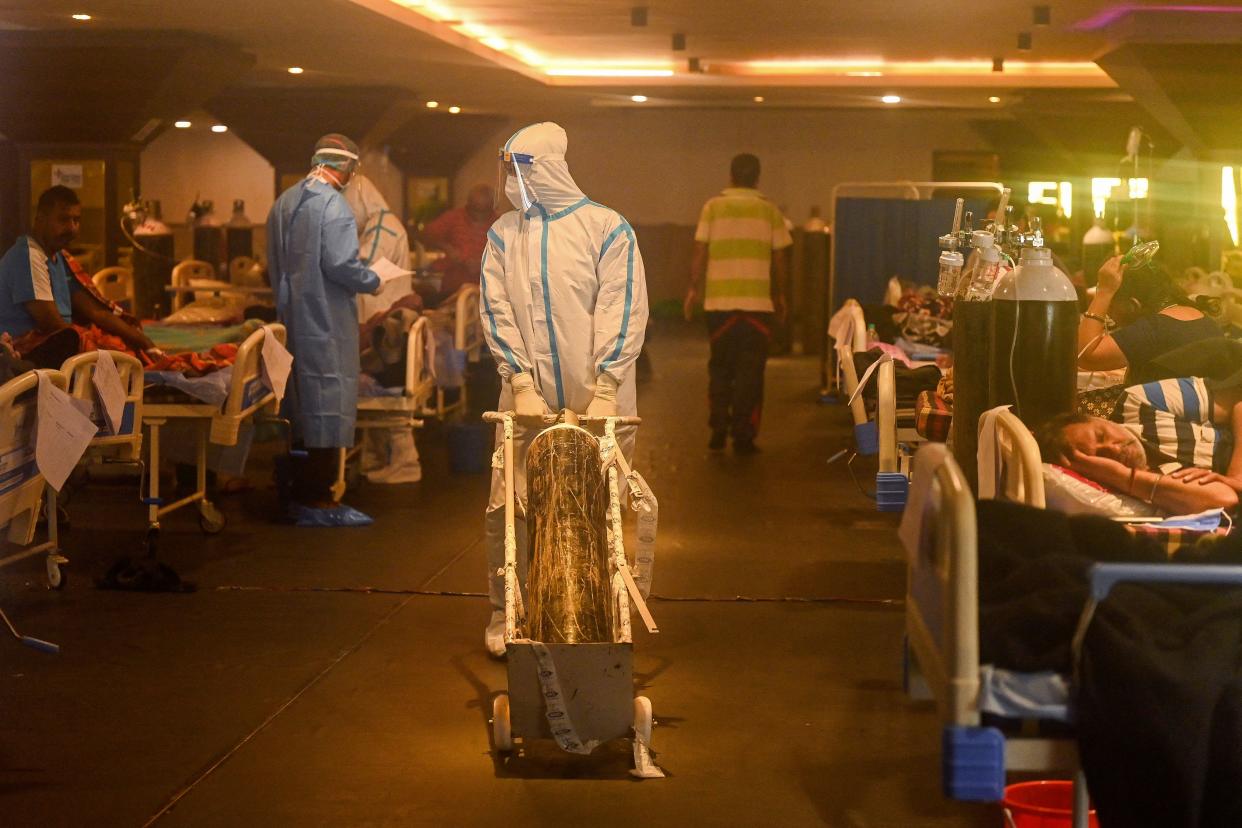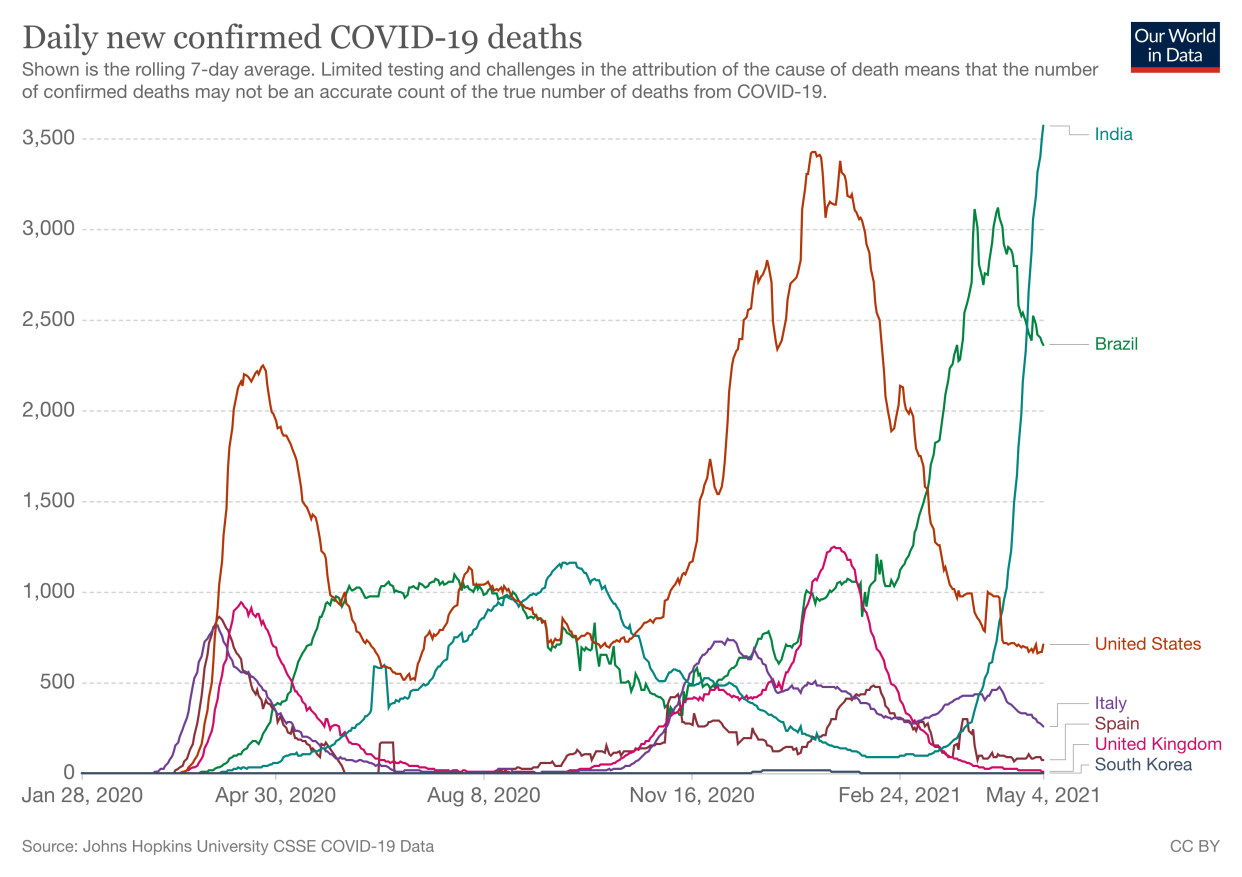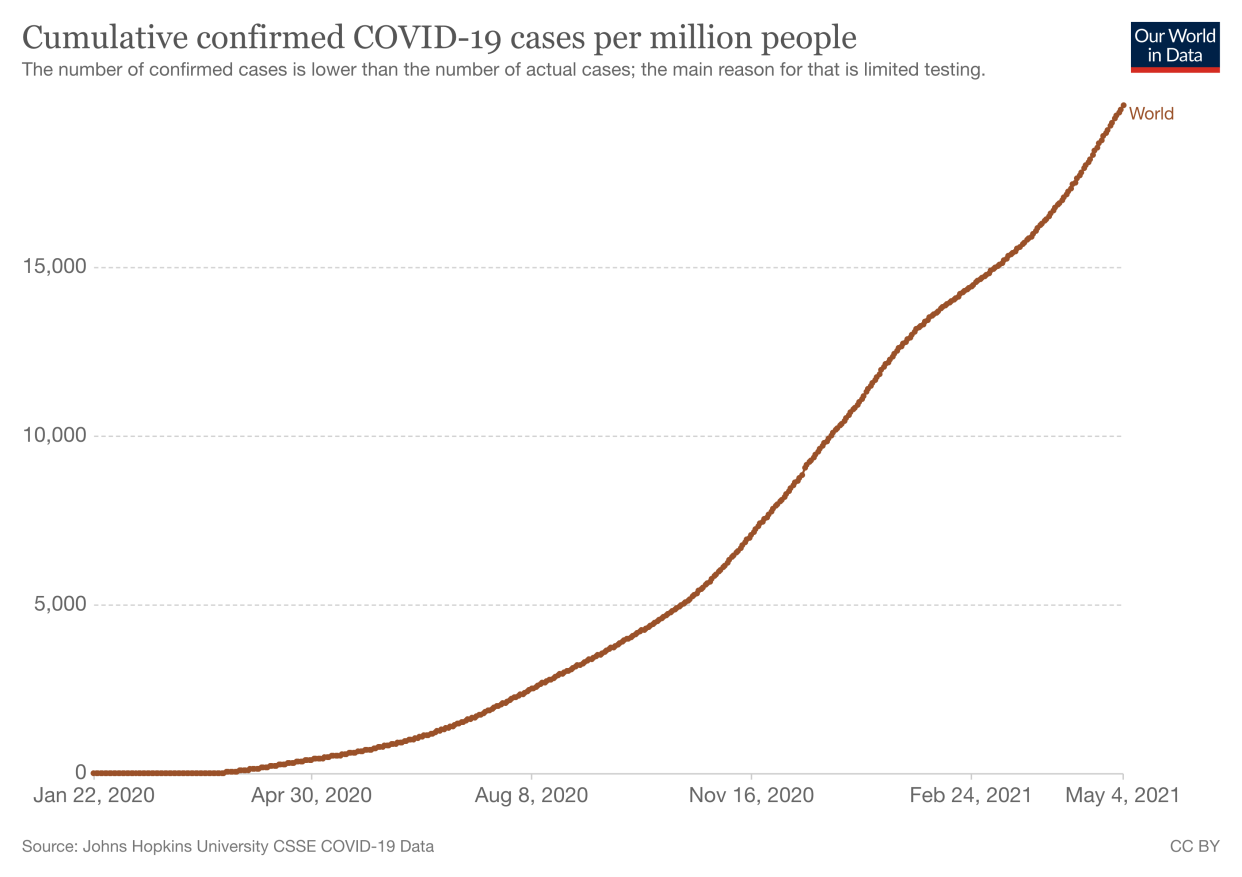World heading into ‘very, very dark period’, WHO warns as India breaks COVID death record
The majority of the world is heading into a “very, very dark period” of the coronavirus crisis, a World Health Organization (WHO) leader has said.
Nearly 18 months into the global pandemic, infections across the world are now “accelerating faster than ever”, Dr David Nabarro warned.
It comes as India suffered the deadliest seven-day period of the pandemic so far, with a daily average of 3,571 deaths in the week up to Monday.

Dr Nabarro, the WHO’s Covid-19 special envoy, told BBC Radio 4’s World at One programme that the pandemic is at a “fearsome” stage.
He said: “There are a few countries that are able to demonstrate that they’ve got much lower levels of disease and they’re actually feeling that they’re recovering.
“The majority of the world is heading into a very, very dark period.

“The reason why it’s particularly dark is that now we don’t have the full data, because more and more the pandemic is spreading in places where testing is not available, so the numbers that we have we know are a major under-estimate.
“It’s bigger than ever, it’s fiercer than ever and it’s causing more distress than ever, this is a bad phase.”
He added the “evolving” virus was going to be “building up and surging in many different parts of the world”.

While the UK is well past the worst of its crisis, with tens of millions of people vaccinated and its governments planning to reopen society in the summer, other countries have suffered explosions in infections.
India is one. On Tuesday alone, there were more than 380,000 new cases, though the actual number will be far higher due to testing limitations.
There were also 3,780 deaths. Again, however, the actual number is likely to be much higher amid reports many deaths have not been registered by the authorities.
The reopening of society, as well as religious gatherings and election rallies, have been blamed for the massive spike in cases.
In Europe, Cyprus saw a massive spike in cases last month. On April 24, the seven-day average surpassed 1,000 infections per one million people, though that has since dropped to 603 per one million, which is the fifth highest in the world.
Meanwhile, Dr Nabarro urged world leaders to look at vaccine distribution as a “world issue”.
"From my perspective, what you do with a scarce preventive action like a vaccine is that you give it to the people who need it the most, you give it to the people who are most at risk and you have to look at the issue as a world issue.”
The UK government, given the success of its rollout so far in protecting the most vulnerable people, has been asked if it will provide extra vaccines to India amid its crisis.
So far, this has been ruled out – with Boris Johnson’s spokesman saying last week there are no surplus doses – though life-saving equipment including 1,200 ventilators have been sent.


